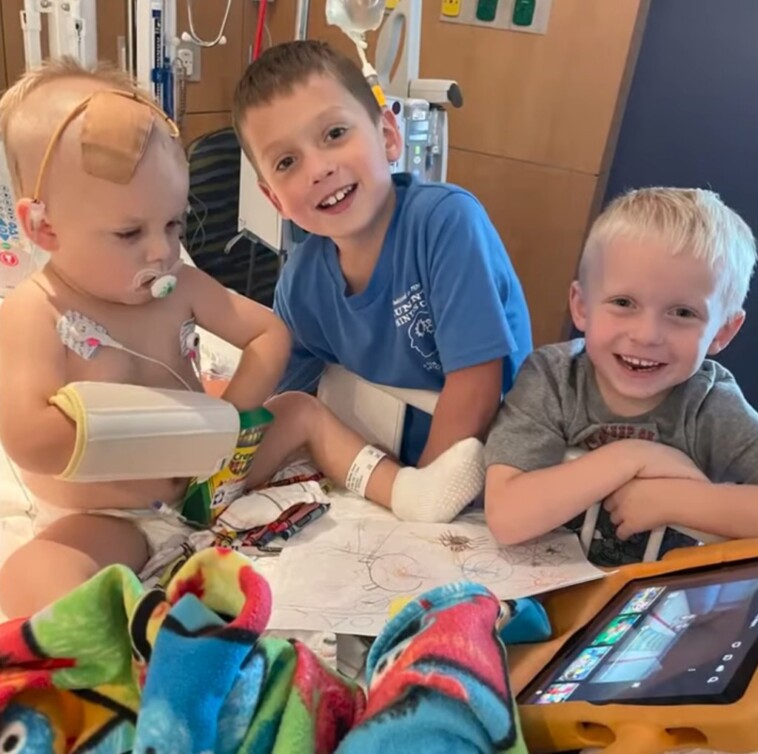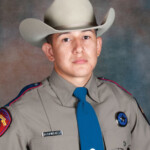Three young Indiana brothers have all been diagnosed with the same rare crippling condition after the trio experienced frequent headaches, according to the boys’ parents, who recently opened up about the health battle.
Lincoln, Norrin and Remley Niece have matching scars on the backs of their heads after undergoing surgeries for Chiari malformation, which affects slightly less than one in 1,000 people across the globe, according to experts.
The condition occurs when the brain at the back of the skull presses through a normal opening and extends to the spinal cord, according to Johns Hopkins Medicine.
The symptoms include neck pain, unsteady walking, poor hand-eye coordination and dizziness, among others, according to the Mayo Clinic.
The boys, who live in Greenfield, each suffered frequent headaches and vomiting before being diagnosed.
“It’s pretty scary,” the kids’ father, Ron Niece, told WRTV on Friday. “There is no doubt about it.”
All three brothers underwent surgeries, leaving the family emotionally drained each time.
“You just kind of become numb and go into autopilot,” mother Whitney Niece explained to the station.
“But it doesn’t make it any more emotionally easy. Sending your kid off into surgery.”
Remley was the first Niece boy diagnosed with the condition in June 2022, but at the time didn’t need surgery, according to the Greenfield Daily Reporter, which interviewed the family in March 2024 when Lincoln was 10, Norrin was 5 and Remley was 2.
Lincoln reportedly started having headaches at 5 but they were initially thought to be tied to a congenital heart defect. A CAT scan later revealed in February 2023 that he also had Chiari malformation and he underwent a procedure the following month.
Remley was still struggling, including randomly falling, and went under the knife in August 2023 — the same month Norrin began having headaches before he had surgery in January, the news outlet reported.
Dr. Laurie Ackerman, of the Riley Hospital for Children, performed each of the surgeries in what is called Chiari malformation decompression, when a little piece of the back part of the skull and a 3-by-3-centimeter (1-inch-square) piece of bone was removed.
“The goal of all of these things is to sort of disimpact the area,” Ackerman told the Greenfield Daily Reporter. “To allow fluid to move around there normally.”
Norrin and Remley experienced complications afterward, leading to a shunt being placed so extra brain fluid can be distributed to the belly.
She noted it’s unusual for all three kids from the same family to have the condition. Doctors and scientists have been conducting research to determine if Chiari malformations are hereditary.
The youngsters have vastly improved and can mostly be “typical kids,” with some key exceptions, so they don’t bump their heads, Whitney said.
“Just like the other day when it was really nice outside, and everybody else could go outside and ride something, Norrin is standing in the garage in tears because he can’t,” she reportedly said.
Many people with the neurological issue never experience any symptoms and medical treatment is not always required, according to the Mayo Clinic.
The parents are speaking out to raise awareness and have worked to help other families in their shoes.
“So if we can help one other kid that maybe is struggling with headaches and they’ve been passed off several times, that’s a win in my book,” Whitney told the newspaper.







